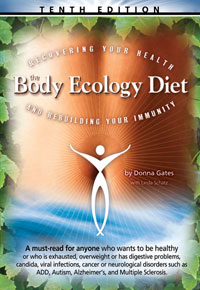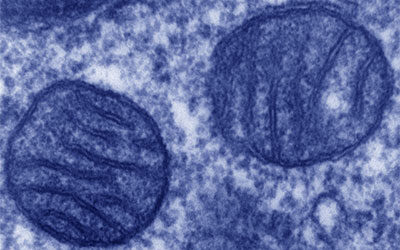What do you know about autism and diet—is there anything besides a gluten- and casein-free diet that parents can do for their autistic children?
Donna’s response:
Over the last few years groups like Defeat Autism Now (DAN), started by doctors whose own children suffer from the condition, have done an excellent job of diagnosing what’s gone so seriously wrong with millions of children—mostly in the last five years. They have consistently found a combination of conditions including severe intestinal dysbiosis, systemic fungal and viral infections, mineral deficiencies, abnormal serotonin levels and an abundance of toxic materials including pesticides other chemicals, mercury and other heavy metals.
To date, attempts to solve autism focus on the use of supplements and various therapies to correct the disorder (and its milder forms, including Asperger’s syndrome, ADD, ADHD and ODD). And yes, diet is key: the recommended gluten-free, casein-free diet has proven to be extremely valuable. But while health-care professionals can be commended for their sincere attempt to find a more natural solution to the problem, they are meeting with only limited success. The missing piece needed to solve the mystery of autism lies deep within the intestinal walls.
A lack of understanding of the role of our inner ecosystem is preventing researchers from unlocking the mystery of autism. If we fully recognized the value of the amazing “subculture” of microflora that our intestinal tracts are designed to support, we would discover the key to preventing and healing this disorder.
Setting the stage for autism
Following conception, a child grows for nine months in the sterilized fluid of the womb, free of bacteria. But as soon as the mother’s cervix begins to dilate in preparation for her baby’s entrance into the world, bacteria from her birth canal contaminate the sterile fluid and begin to coat the body of the emerging fetus and even enter his digestive tract. Since this phenomenon is literally unseen, it goes unnoticed as people focus on the obvious things—for instance, the mother’s well-being and whether the child has all his fingers and toes. No thought is given to the critical importance in these first few days of life to the development of the baby’s inner ecosystem, intended by nature to help ensure human survival in a world dominated by bacteria (which are mostly beneficial, but sometimes harmful). It’s this inner ecosystem that will determine the effectiveness of the child’s immune system and ability to digest nutrients and remain free of toxins, and thus the quality, and even the length, of her life.
Unfortunately, because cultured, fermented foods are not a part of our western diet, few mothers have a healthy predominance of beneficial vaginal bacteria needed to “inoculate” their babies at birth with these vital components of a healthy inner ecosystem. Instead, all too frequently, they unsuspectingly pass on pathogenic bacteria and yeast to their newborn child. In addition, many infants begin life with the added disadvantage of inheriting from their parents weakened adrenals and congested livers. These factors often combine with a lack of Colostrum at birth to build the immune system to fight fungal and viral infections, the use of soy formulas (high in copper, manganese and plant estrogen) and the early introduction of sugars and carbohydrates that feed the yeast and viral infections. While the child may seem healthy from all outside appearances, the stage has been set for autism.
A series of vaccinations containing toxic mercury and aluminum add to the amounts of toxic metals already inherited from the mother and father. The combined result is that the brain and nervous system stop functioning as they should. For most of the children who, at birth, are “normal, bright, high functioning little beings,” the measles mumps and rubella vaccine takes them over the edge. The measles virus mutates, the body’s undeveloped immune system has no resistance to this combination of three viruses and the gut lining becomes infected, a condition that is not detected since it cannot be seen. That’s why following this vaccination, some children develop a fever, act ill and begin the steady decline into autism. Sadly, all this could, and still can be, prevented.
The gluten-free, casein-free (GF/CF) diet—is it enough?
At Body Ecology our goal is to teach parents of autistic children to take the GF/CF diet to another level. The Body Ecology Diet was originally created to reverse fungal infections including Candidiasis (present in children with autism), so it is a great start. Besides having no gluten or casein, it is also free of sugar and bad fats.
Unlike other diets, ours primarily focuses on establishing the inner ecosystem deep within the intestines, then healing chronic and acute bowel dysbiosis, correcting the nutritional deficiencies, strengthening the adrenals and conquering the systemic infections. We do this by having the children under our supervision eat and drink foods that are fermented or cultured every day. These essential foods lay down a critical foundation for establishing a healthy inner ecosystem in the intestinal tract and follow Nature’s way of building strong, healthy immune and digestive systems. Soon after incorporating fermented foods into their diets, our autistic children are able to digest high quality fats essential to becoming well.
This includes plenty of raw butter and raw cream (which may contain insignificant amounts of casein). These foods are rich in the raw, saturated fatty acids (like those in mother’s milk) that nourish the brain and intestinal lining. Anti-fungal and antiviral coconut oil, cod liver oil (DHA, EPA and vitamins A and D), and unrefined seed oils such as pumpkinseed oil (zinc), flax seed oil (omega 3), evening primrose, borage (GLA), and raw, casein-free Ghee round out an excellent fatty acid profile. Our Vitality SuperGreen alkalizes their overly-acidic blood and heals and nourishes the mucosal lining of the intestines. We add undenatured whey protein (Immune Pro) to increase glutathione levels—helping with the detoxification of toxins—and raw egg yolks (rich in choline, fats and vitamin A) to also nourish the brain. (Vitamin A also helps fight the viral infections) Once large amounts of friendly dairy-loving microflora predominate in the intestines, we add buttermilk and whey, and then finally have many of them back to drinking fermented, organic raw milk (kefir) with casein. Cultured veggies, a special water from Japan, vegetables from the land and ocean and a limited amount of raw fruits always combined with a fermented coconut water drink to eat up the sugars in the fruit, give our autistic children the nourishment they need to start them on the road to wellness.
One thing has become increasingly clear: autism isn’t the congenital condition that it was once assumed to be. It is preventable, and even treatable if we understand the multiple causes of the “systemic failure” that brings it about.
Donna









0 Comments